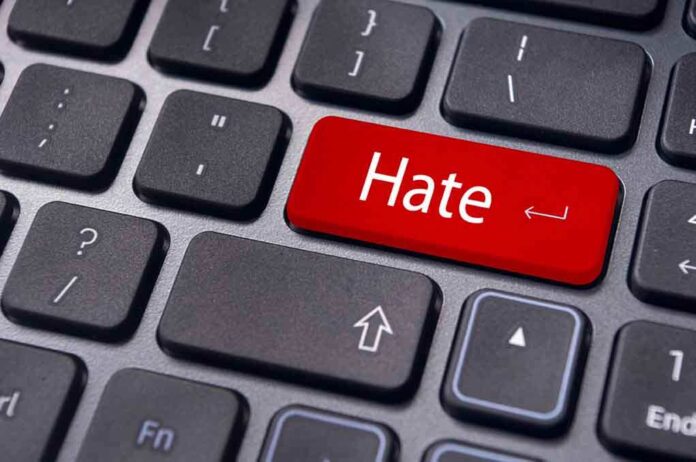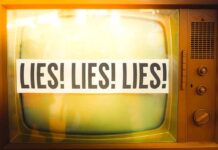
New York’s Jewish community faces a wave of fear and uncertainty as the city’s leadership shift threatens to weaken protections against antisemitism, leaving families on edge and demanding action.
Story Snapshot
- Jewish New Yorkers report record-high anxiety amid a surge in antisemitic hate crimes and political rhetoric.
- Mayor Adams’ recent executive order adopts the IHRA definition of antisemitism, but policy effectiveness remains under scrutiny.
- Mayoral frontrunner Zohran Mamdani’s anti-Israel positions alarm community leaders, raising fears of institutionalized bias.
- Ongoing debate over free speech, hate crime policy, and the future of Jewish safety in America’s largest city.
Jewish New Yorkers on Edge as Political Climate Shifts
In the aftermath of New York City’s heated mayoral race, the city’s Jewish residents—numbering nearly one million—are experiencing unprecedented anxiety. The surge in antisemitic incidents since late 2024, including hate crimes and provocative public displays, has left families feeling vulnerable. Many point to the rise of candidates like Zohran Mamdani, whose rhetoric and positions on Israel have sparked fears that the next administration will be less proactive in protecting Jewish communities. This environment, amplified by global unrest and divisive activism, threatens the very sense of safety that New York’s Jewish population once relied upon.
The Adams administration responded by establishing a Jewish Advisory Council and a dedicated office to combat antisemitism, culminating in Executive Order No. 52. This order formally adopts the International Holocaust Remembrance Alliance (IHRA) definition of antisemitism for all city agencies—a move applauded by many Jewish leaders and pro-Israel advocates. However, critics argue that such measures are only as strong as the political will behind them. With hate crimes against Jews rising to 57% of all reported cases in 2025, community members question whether these initiatives will be sustained or diluted as new leadership takes office.
Mayoral Transition Sparks Intense Debate Over Community Safety
As the mayoral campaign reaches its peak, Jewish leaders publicly express alarm over Mamdani’s candidacy, fearing that his positions could embolden antisemitic actors and erode hard-won protections. The recent removal of an anti-Israel art exhibit from Governors Island, after widespread outrage, exemplifies the city’s tense balancing act between free expression and public safety. Adams, whose pro-Israel stance and strong condemnation of antisemitism have defined his tenure, warns that complacency could allow hatred to become institutionalized. Meanwhile, Mamdani’s campaign has declined to address these concerns directly, deepening the sense of uncertainty among vulnerable communities.
Community advocates emphasize the importance of clear, consistent leadership in the fight against antisemitism. The recent executive order directs all agencies to recognize the IHRA definition, but debate continues over codifying this policy into law. For many, the upcoming election represents a pivotal moment: Will New York continue to prioritize the safety and dignity of its Jewish citizens, or will political polarization and progressive activism undermine these efforts? The stakes are clear, as increased police presence and advocacy have become the new normal for a community that once thrived on trust and mutual respect.
Broader Implications for Constitutional Rights and Social Cohesion
The situation in New York is a warning for the nation about the dangers of letting ideological agendas override fundamental constitutional protections. Conservative observers caution that any erosion of religious liberty, free association, or public safety sets a precedent that could spread beyond city limits. The normalization of antisemitic rhetoric—whether intentional or through neglect—threatens the social fabric and undermines the principles that define American society. As advocacy groups mobilize and media scrutiny intensifies, the city’s approach will likely influence broader debates on hate crime policy, free speech, and the proper role of government in defending vulnerable communities.
Fox News ‘Antisemitism Exposed’ Newsletter: New York's new mayor leaves city's Jewish community terrified https://t.co/oi2utPX4TZ
— Hot Talk 99.5 WRNN (@995WRNN) November 6, 2025
Experts warn that legislative and executive actions must be matched by vigilance and accountability. The adoption of the IHRA definition is a significant step, but without clear enforcement and bipartisan support, the risk of backsliding remains high. Jewish New Yorkers, along with allies across the city, are now looking to elected officials to demonstrate not just words, but unwavering commitment to protecting constitutional rights and rejecting all forms of bigotry. The eyes of the nation are on New York as it confronts a defining test of leadership, values, and community solidarity.
Sources:
NYC mayor warns antisemitism spreading ‘like a cancer’ across city
Eric Adams End Antisemitism Ballot Line
Eric Adams addresses antisemitism in NYC
NYC Mayor Adams Issues Landmark Executive Order Recognizing IHRA Definition












